Reflections on the 2016 HEPEX workshop (6-8 June 2016)
Contributed by QJ Wang, Maria-Helena Ramos, Andy Wood, François Anctil, Antoine Thiboult, Dirk Schwanenberg and Rodolfo Alvarado Montero
What a fantastic workshop! And this was certainly thanks to all the participants that you can see in the group photo below.
Participants to the workshop
The workshop was attended by about 85 people from 16 countries, with about 60 oral and posters presentations. The programme and the presentations that were made available by the authors can be seen here.
François Anctil (Université Laval) welcome participants on the first day
Many of the workshop attendees were connected through WhatsApp, so they could easily meet outside the workshop hours. Some early morning participants, for instance, were ready to go running at 6am, although not everyone responded to these calls after late nights, plenty of relaxed conversations and some beers.
In the programme, there was, of course, the highly anticipated game, this year featuring the economic value of ensemble forecasts. It was presented by Micha Werner, and we are looking forward to hearing more about the results (note: he publicly promised to provide a blog post as soon as the game sheets collected are analysed!).
The game will also join the Hepex resources page soon, and thus be available for the community to play it during meetings and courses.
Micha Werner presenting “The game of making decisions under uncertainty: How sure must one be?”
Massimiliano Zappa in front of his poster
Talking about games, we also had the opportunity to play again the peak-box game, proposed by Massimiliano Zappa, which was played in a plenary session at the Hepex workshop in Maryland (USA) in 2014. This was a nice example of interactive poster, where 42 participants were able to try their chances (and test their wisdom) in forecasting the peak and timing of a real flood event. In this PPT you can follow the diversity of opinions and our winner (thanks, Massimiliano, for sharing it with us!).
It was also pleasing to hear the significant progress made, since the Norrköping workshop, in setting up a testbed for inter-comparisons of techniques, methods and systems for seasonal streamflow forecasting. The topic is progressing fast within HEPEX, with notably a Special issue being prepared in HESS (check here for open submissions). If you want to participate to the experiment, contact Andrew Schepen (CSIRO) or Andy Wood (NCAR).
Also about experiments and testbeds, this year the Hepex workshop was followed by a break-out session. About 15 people attended the side event called “Assimilate your basin”. It was organized by Dirk Schwanenberg, Albrecht Weerts, Rodolfo Alvarado Montero and Peter Krahe. The participants provided 8 case studies to a testbed for data assimilation in hydrological models, conducted hindcasting experiments and assessed the forecast performance. The group discussed the common interest in data assimilation and the possibility of setting up a related HEPEX inter-comparison experiment in the near future. Further news will come soon in the Hepex Portal (or contact the session organizers if you are interested to learn more about it).
Break-out-session “Assimilate your basin”
Science, operations and applications
Three themes emerged from the workshop: science, operations, and applications.
- The last theme, applications, featured very strongly compared with previous workshops. There were a number of presentations on the use of forecasts in decision-making, and how this resulted in actions and impacts. Methods for evaluating the value of ensemble forecasts were contrasted, and showed how social structure and communications play an important role in achieving impacts. Many case studies, including from hydropower corporations and flood emergency and water management agencies, demonstrated the benefits and complexities of using ensemble forecasts.
- On forecasting operations, how forecasters interact with forecasting models drew much interest once again – If one was not “in the loop”, one could certainly be just as effective or even more so operating “over the loop”! Challenges and successes in forecasting operations and water management for trans-boundary water systems such as the Great Lakes were highlighted. Practical and yet significant issues were discussed on how to maintain consistency in streamflow forecasting services when weather and climate forecasting models were frequently updated. Attention was also drawn for consistency in forecasts and forecasting methods across regions for operating large energy grids, for which hydropower can play a significant role. What integration of sciences and technologies could achieve was ably demonstrated by success in developing highly sophisticated forecasting systems for complex urban regions.
- On forecasting science, new methods and successes in real applications of data assimilation were presented. The possibility of doing streamflow forecasting within NWP models is getting real, especially when these NWP models could be calibrated by new solvers developed by hydrologists. Downscaling of weather and climate forecasts was always going to be an area of strong interests, but this year Shaake Shuffle became a ground for fertile research, with a number of variants proposed to make it working even better! Different ways to handle hydrological uncertainty, being through representing multiple initial conditions, multiple hydrological models, or total residues, were showing progress towards achieving reliable ensemble forecasts.
A perfect score
Quebec city on a sunny day
The workshop was a great success – with a perfect “energy score” of 100!
We thank all the key note speakers, speakers, poster presenters, and all attendees, for making the workshop such a success. In particular, we thank all those that participated to the workshop organization for running such a wonderful workshop – with perfect accuracy and little uncertainty!
We also thank the sponsors of the workshop for the excellent facilities and warm hospitality.
The charm of Quebec city will last in the memory of attendees for a long time.
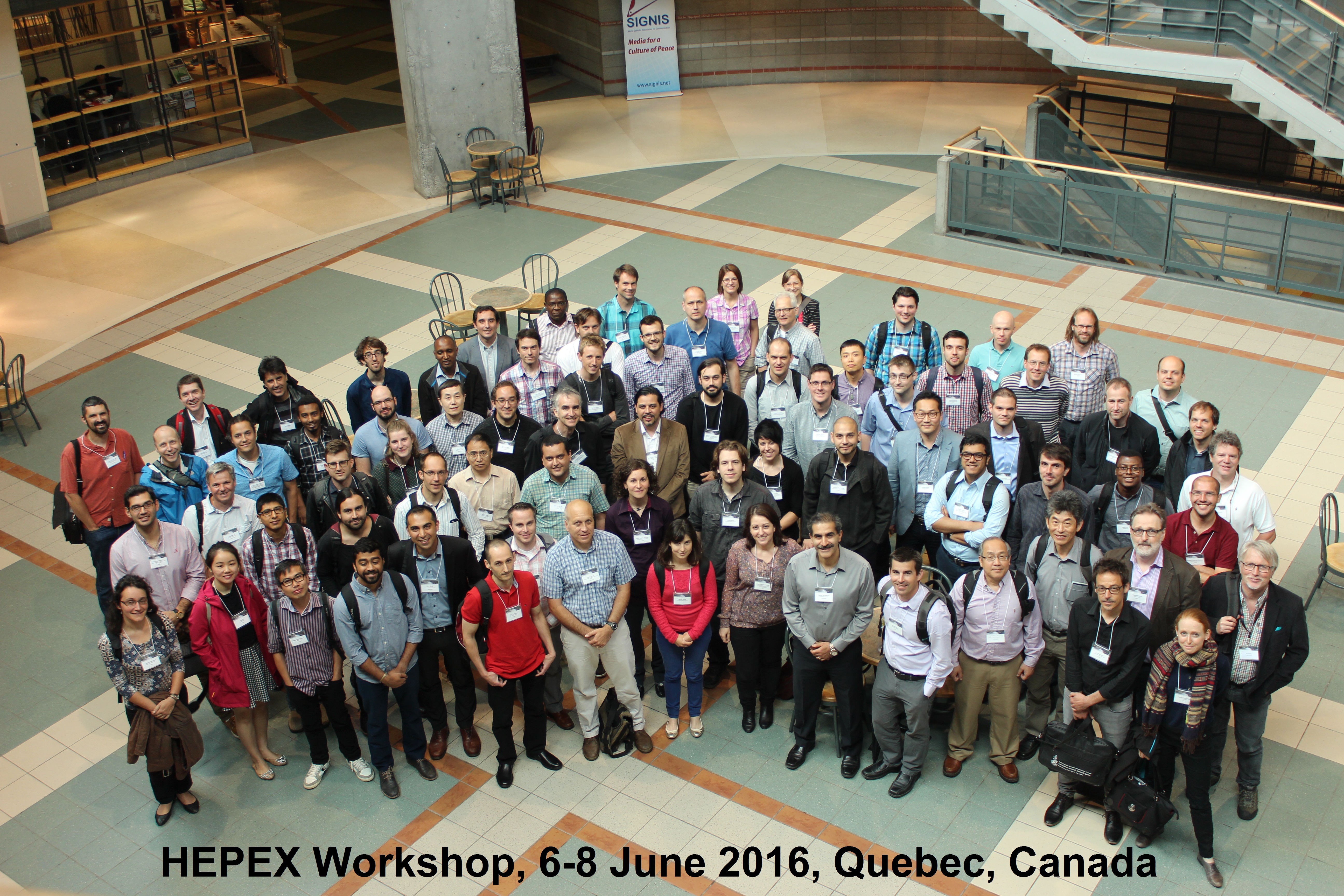
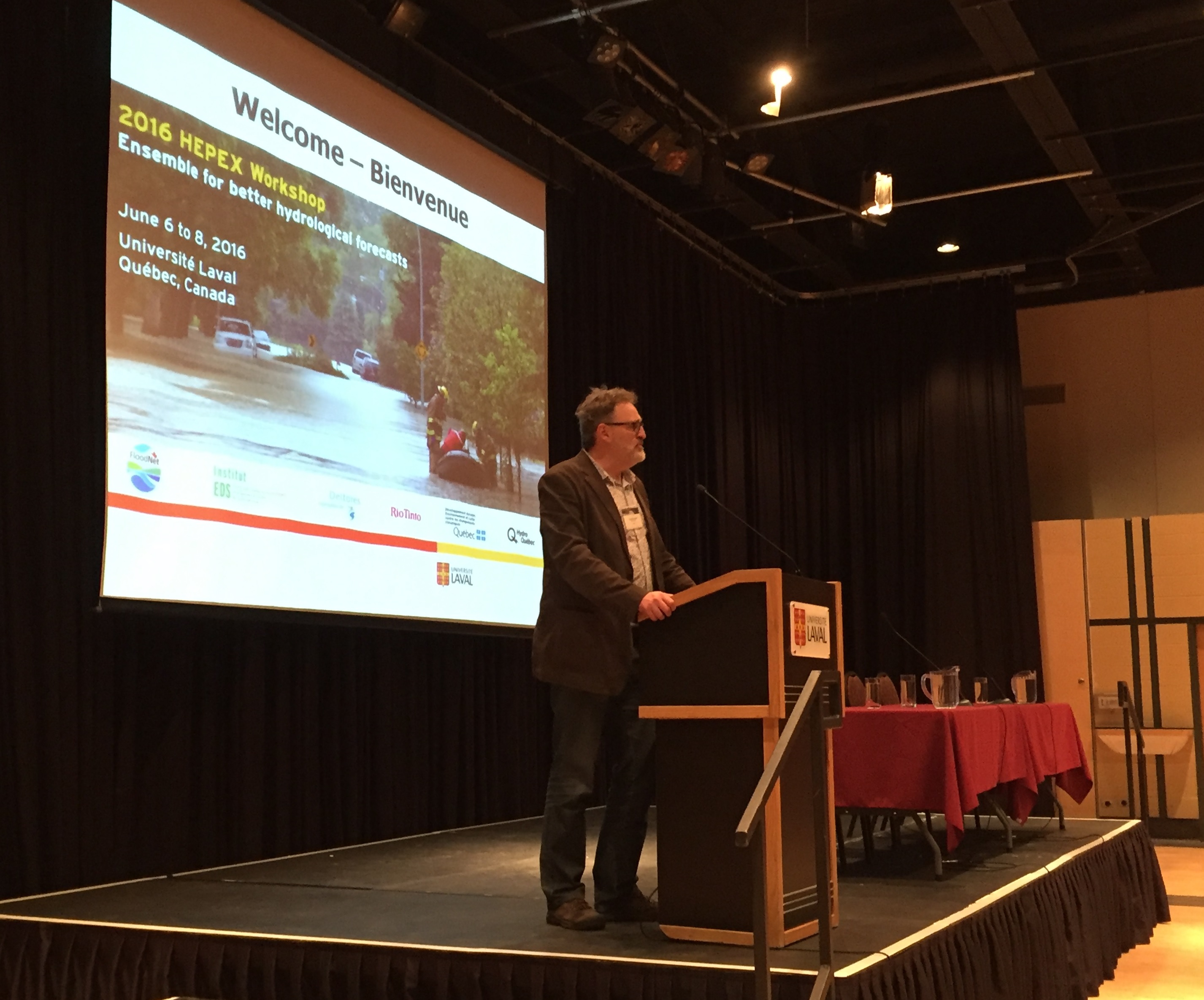
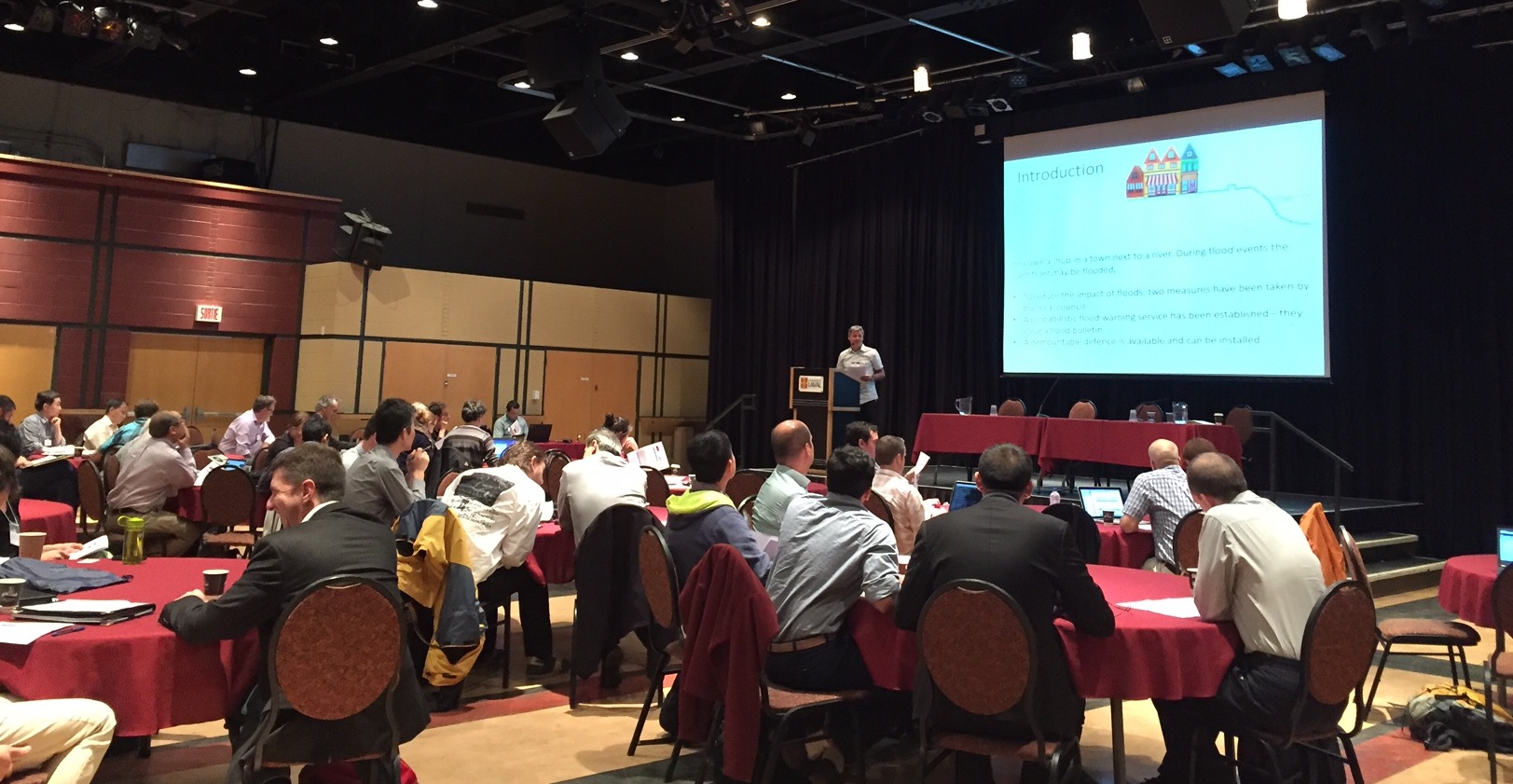
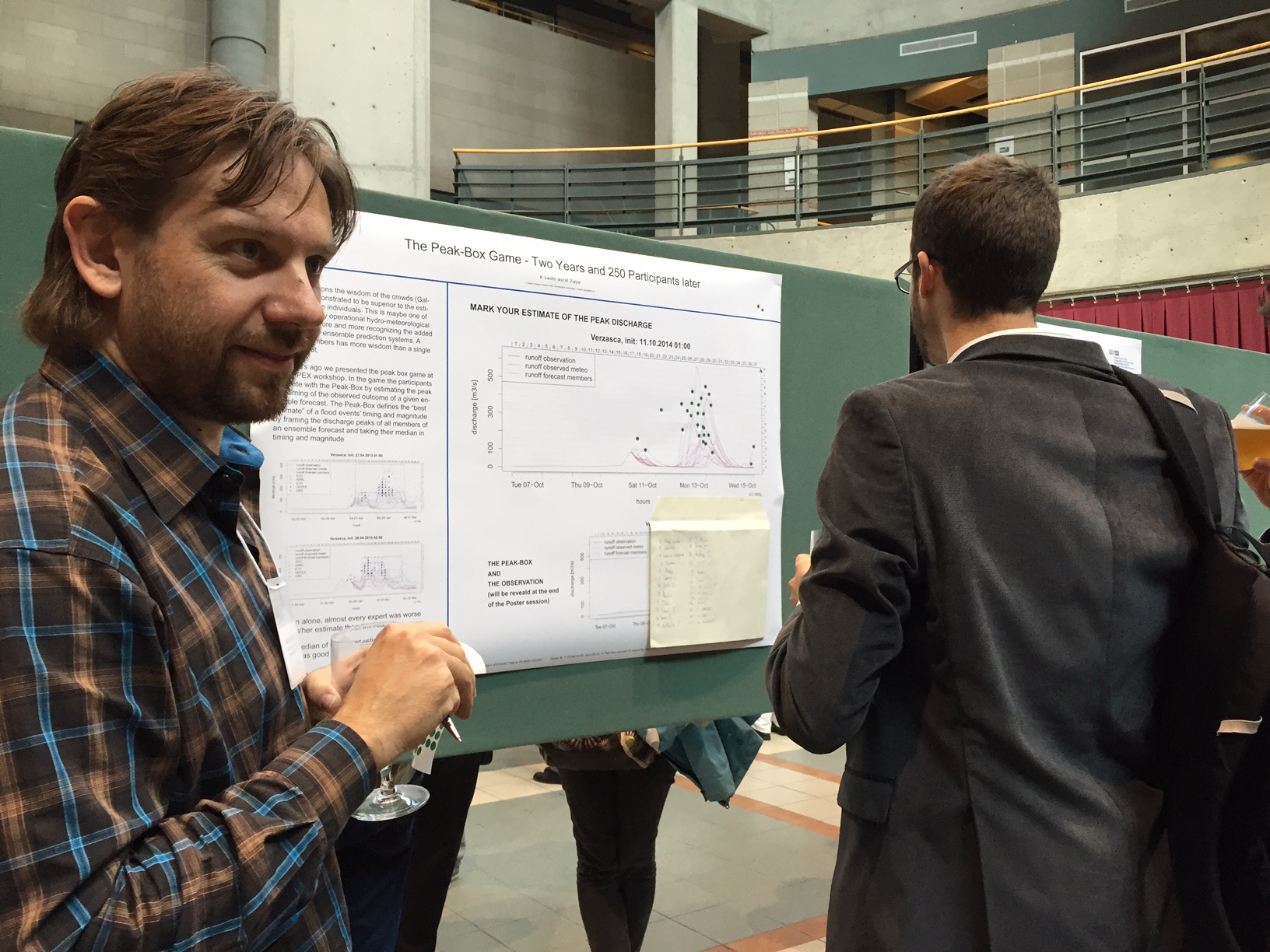
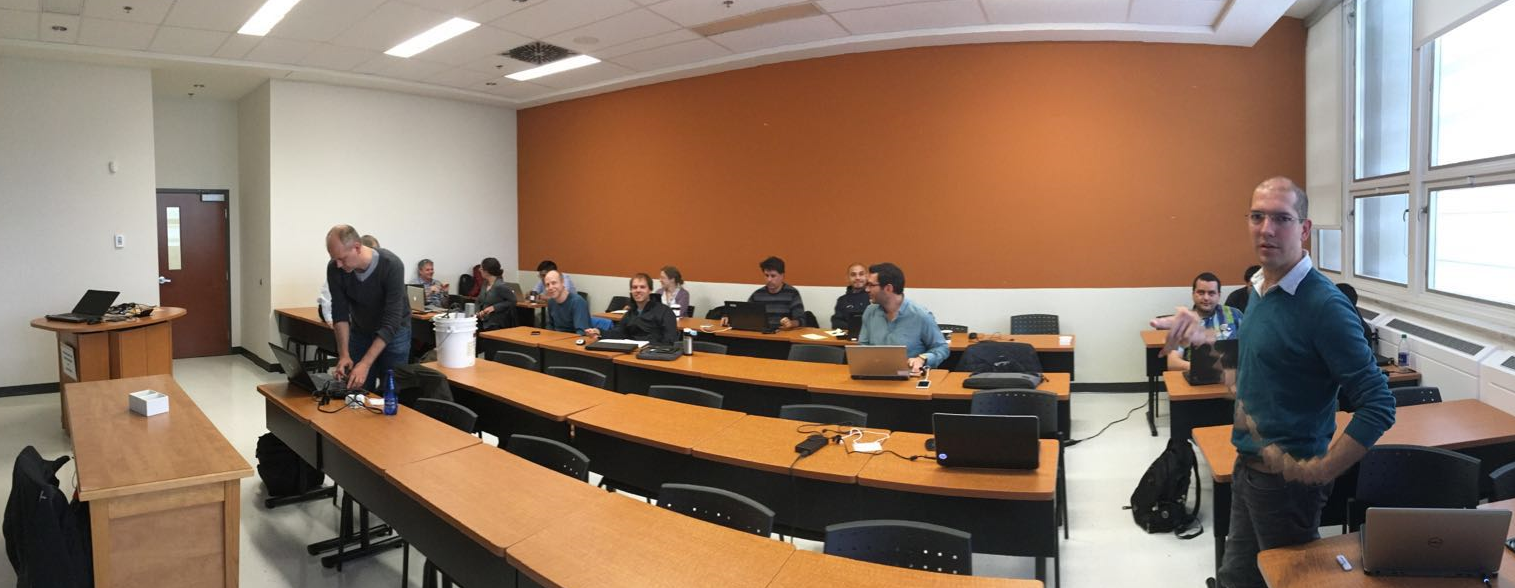

0 comments